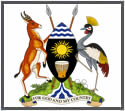Aquaculture Promotion
The Directorate of Fisheries Resources -DIFR, promotes the development of Aquaculture as a complementary or alternative source of fish production, including providing training, resources, and support for fish farming.
Previous Aquaculture Activities:
- Capacity Building: We implemented Training programs for farmers and extension workers on aquaculture techniques, pond management, and fish health management. The training manual is accessible on: Manuals_Others
- Input Supply: Through partnership, we ensured Provision of quality fish seeds, feed, and other inputs to support aquaculture production,
- Demonstration Farms: Through our Research Institutes and Partners, we ensured establishment of demonstration farms to showcase best practices in aquaculture and serve as learning centers for farmers.
- Market Linkages: We facilitated market access for aquaculture products through the establishment of market networks and linkages with buyers.
- Research and Development: We Conducted research on improved fish breeds, feed formulations, and production systems suitable for local conditions.
Current Aquaculture Activities:
- Ecosystem Monitoring: We Monitor the health and integrity of aquatic ecosystems, including water quality, habitat condition, and biodiversity, to identify and address threats to fish populations.
- Technology Adoption: We Explore and promote the adoption of new technologies and practices, such as improved fishing gear, aquaculture techniques, and fish processing methods, to enhance productivity and sustainability.
- Promotion of Cage Culture: We Encourage the adoption of cage culture systems in lakes and reservoirs to increase fish production and improve livelihoods.
- Integrated Aquaculture-Agriculture Systems: We Promote the integration of fish farming with agriculture, such as aquaponics and integrated rice-fish farming, to enhance resource use efficiency and productivity.
- Value Addition and Processing: We Support the development of value-added fish products and processing facilities to increase the profitability of aquaculture enterprises.
- Environmental Sustainability: We Emphasize environmentally sustainable aquaculture practices, including water resource management, effluent treatment, and ecosystem conservation.
Future Aquaculture Activities:
- Expansion of Smallholder Aquaculture: Scaling up support for smallholder fish farmers, including women and youth, through targeted interventions and capacity-building programs.
- Diversification of Species: Promoting the cultivation of diverse fish species with high market demand and resilience to climate change, including tilapia, catfish, and Nile perch.
- Aquaculture Certification and Standards: Developing and implementing certification schemes and quality standards for aquaculture products to enhance market competitiveness and consumer confidence.
- Innovation and Technology Adoption: Encouraging the adoption of innovative technologies and practices, such as biofloc systems, recirculating aquaculture systems (RAS), and digital aquaculture management tools, to improve efficiency and sustainability.
- Public-Private Partnerships: Strengthening partnerships with the private sector, research institutions, and development agencies to leverage resources, expertise, and market linkages for the sustainable growth of the aquaculture sector.
These activities reflect a strategic focus on promoting the sustainable development of aquaculture in Uganda, with an emphasis on increasing production, improving livelihoods, and ensuring environmental sustainability.


